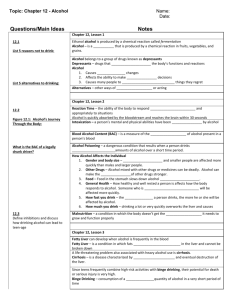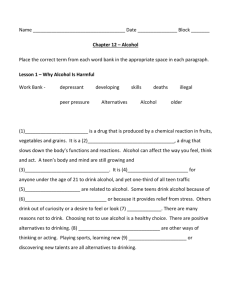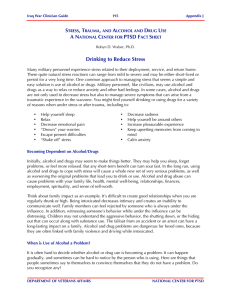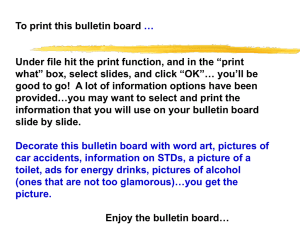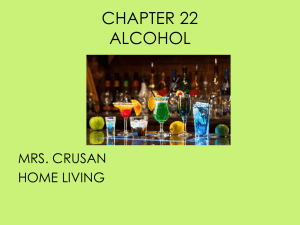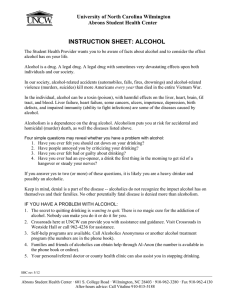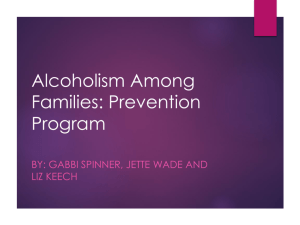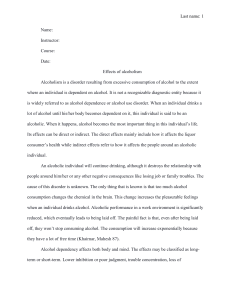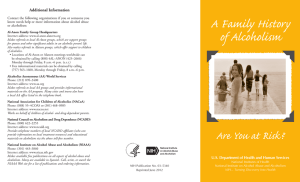Alcoholism Affects Everyone
advertisement
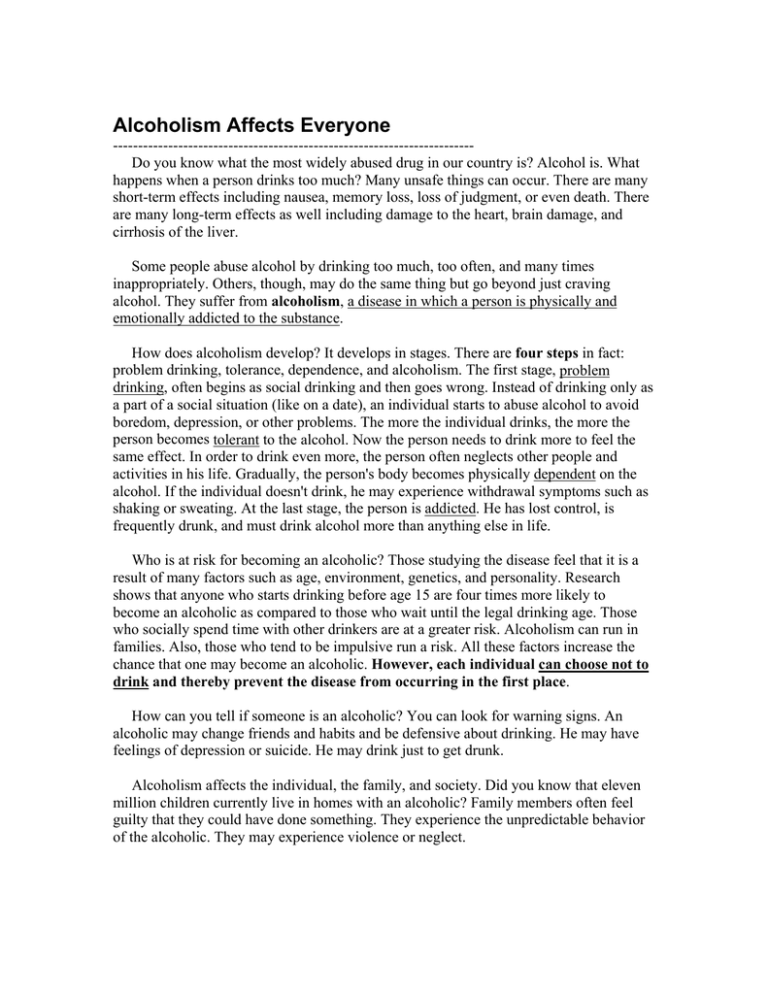
Alcoholism Affects Everyone -----------------------------------------------------------------------Do you know what the most widely abused drug in our country is? Alcohol is. What happens when a person drinks too much? Many unsafe things can occur. There are many short-term effects including nausea, memory loss, loss of judgment, or even death. There are many long-term effects as well including damage to the heart, brain damage, and cirrhosis of the liver. Some people abuse alcohol by drinking too much, too often, and many times inappropriately. Others, though, may do the same thing but go beyond just craving alcohol. They suffer from alcoholism, a disease in which a person is physically and emotionally addicted to the substance. How does alcoholism develop? It develops in stages. There are four steps in fact: problem drinking, tolerance, dependence, and alcoholism. The first stage, problem drinking, often begins as social drinking and then goes wrong. Instead of drinking only as a part of a social situation (like on a date), an individual starts to abuse alcohol to avoid boredom, depression, or other problems. The more the individual drinks, the more the person becomes tolerant to the alcohol. Now the person needs to drink more to feel the same effect. In order to drink even more, the person often neglects other people and activities in his life. Gradually, the person's body becomes physically dependent on the alcohol. If the individual doesn't drink, he may experience withdrawal symptoms such as shaking or sweating. At the last stage, the person is addicted. He has lost control, is frequently drunk, and must drink alcohol more than anything else in life. Who is at risk for becoming an alcoholic? Those studying the disease feel that it is a result of many factors such as age, environment, genetics, and personality. Research shows that anyone who starts drinking before age 15 are four times more likely to become an alcoholic as compared to those who wait until the legal drinking age. Those who socially spend time with other drinkers are at a greater risk. Alcoholism can run in families. Also, those who tend to be impulsive run a risk. All these factors increase the chance that one may become an alcoholic. However, each individual can choose not to drink and thereby prevent the disease from occurring in the first place. How can you tell if someone is an alcoholic? You can look for warning signs. An alcoholic may change friends and habits and be defensive about drinking. He may have feelings of depression or suicide. He may drink just to get drunk. Alcoholism affects the individual, the family, and society. Did you know that eleven million children currently live in homes with an alcoholic? Family members often feel guilty that they could have done something. They experience the unpredictable behavior of the alcoholic. They may experience violence or neglect. Alcoholism can often lead to car accidents, drowning, and other violent acts. Society pays for the end results of alcohol abuse. Money pays for missing days of school or work, treating alcoholism, and handling crime. To get help, an alcoholic needs treatment. Withdrawal will occur causing headaches, shaking, and anxiety. Treatment should include therapy for coping strategies and understanding as well. Perhaps the most famous program is Alcoholics Anonymous. AlAnon and Alateen are programs available to help family members cope with this difficult disease.
